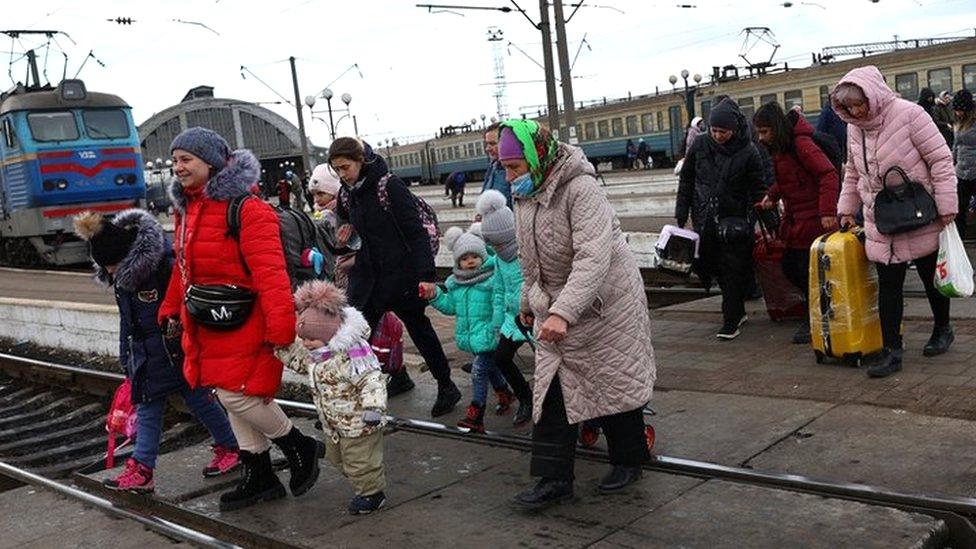Ukraine: Ireland's 'priority is humanitarian' as it takes 5,500 refugees
- Published
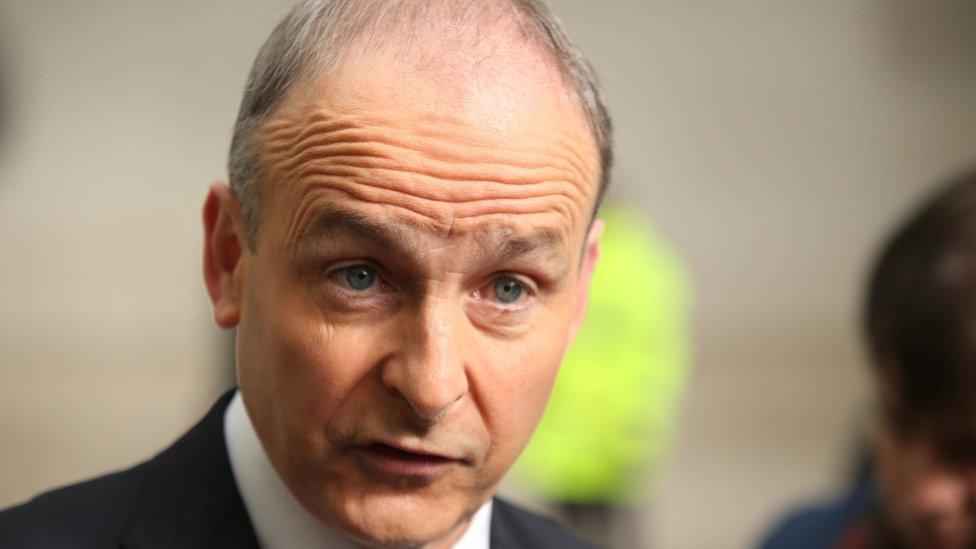
Micheál Martin says a humanitarian response "trumps everything"
Five-and-a-half-thousand Ukrainian refugees have now arrived in the Republic of Ireland, the country's taoiseach (prime minister) has said.
Ireland lifted restrictions on Ukrainians arriving in the country shortly after Russia invaded.
This allows them to enter Ireland without checks or visas beforehand, as well as access benefits and healthcare, and the right to work.
Micheál Martin said a humanitarian response "trumps anything".
More than 2.5 million people have fled Ukraine since Russia invaded, in what the UN has called the fastest-growing refugee crisis since World War Two.
The Irish government has previously said it could take up to 100,000 refugees.
Asked about the figure by Sophie Raworth on BBC's Sunday Morning, Mr Martin said Ireland had "never experienced anything on this scale before, but we believe we need to do it".
He added: "Our primary impulse is to assist those fleeing war.
"The Irish people are very seized by a series of atrocities that are going on, what we're witnessing on our screens every evening is really shocking people and there is huge human empathy there to help the women and the children.
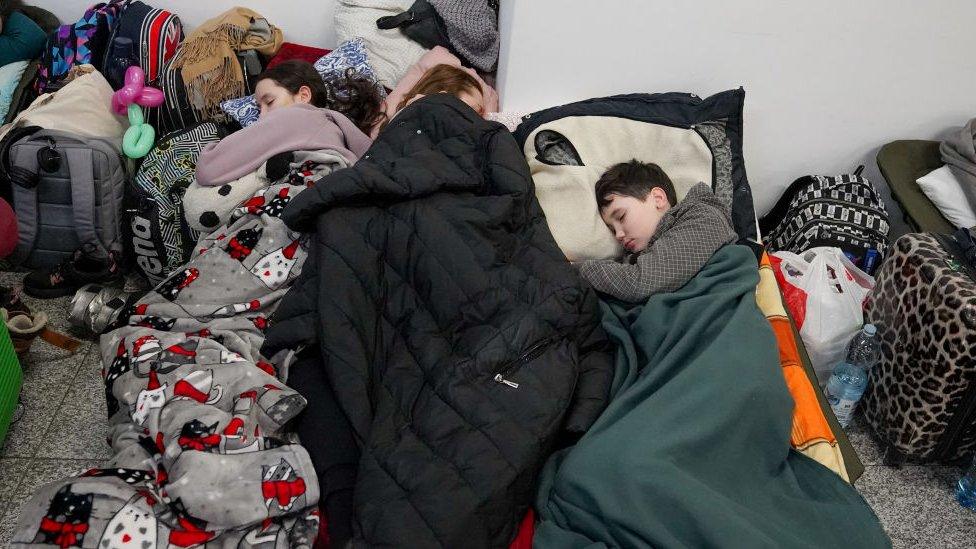
There is no sign of any end to the war in Ukraine, now in its 18th day
"There is always a balancing of issues, we keep channels open with our UK counterparts. The Home Secretary and our Minister for Justice Helen McEntee have been in regular contact."
Mr Martin is in London on a two-day trip, where he has discussed the Northern Ireland protocol with Prime Minister Boris Johnson, as well as the international response to Ukraine.
When asked about security concerns Mr Martin said: "The humanitarian response trumps anything as far as we're concerned.
"But our security people will keep on monitoring the situation in terms of what's on.
"We can all see the humanitarian crisis, we do know that that can be exploited by certain bad actors, but our security personnel will keep an eye on that in a more general way.
"The prime minister's only discussion with me was on the basis of praising the Irish humanitarian response and no more than that. We didn't get into the security issues as such."
Ireland's military is neutral, and it is not a Nato member.
Because of this Ireland sends only "non-lethal" aid to Ukraine, like medical supplies, body armour and helmets - not weapons.
Asked about Ireland's military neutrality and Ukraine's international plea for arms, Mr Martin said his country would have to look at its position in the future but added: "One cannot, in the middle of a crisis, change a long-held policy overnight."
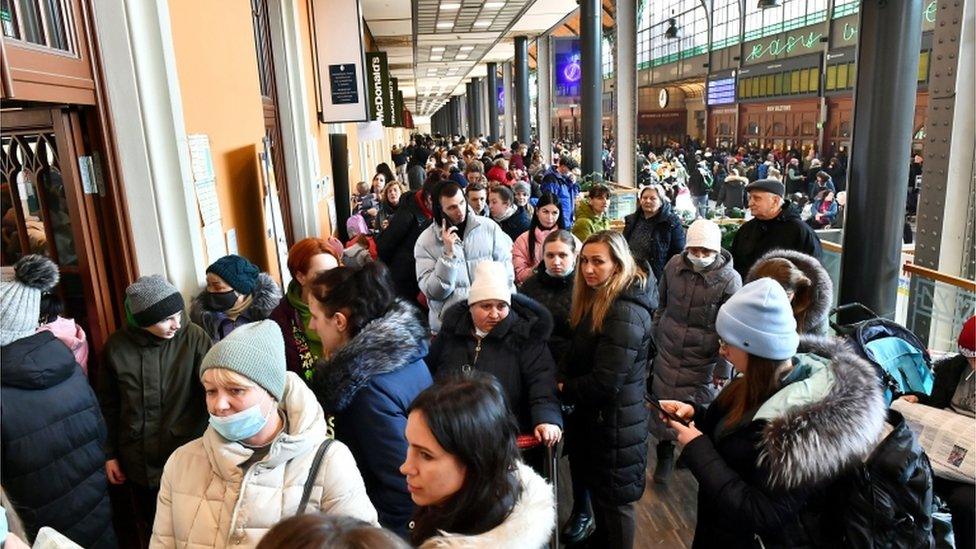
Events in Ukraine including the flight of refugees have caused some to question Ireland's military neutrality
He said Ireland was not morally or politically neutral.
"We're not a military power, what Ireland does best is on the humanitarian side and on the peace keeping side."
On Sunday, the government announced a scheme to offer UK households £350 a month to host refugees.
Unlike the EU, the UK has not waived its visa rules.
On 9 March, Prime Minister Boris Johnson said about 1,000 Ukrainian refugees had received UK visas.
But some MPs have called for restrictions to be scrapped.
Protocol talks sidelined by war?
The programme asked the taoiseach whether the talks on the Northern Ireland Protocol - the post-Brexit trade arrangements which led to the recent collapse of Stormont's devolved government - would be "kicked into the long grass" because of the crisis in Ukraine
"I think we should concentrate, obviously, on our response to Ukraine," Mr Martin replied, but he also said he believed it would also be possible to make progress on the protocol talks.
He suggested the war in Ukraine had showed the strength of international cooperation on "big issues", which gave him hope for agreement on the protocol.
"What's interesting - and I welcome this warmly - is the very strong partnership between the UK, the EU, the US on fundamental issues of substance - which is democracy; human rights; the freedom of the individual - and that is something that I think really trumps the issues.
"It really says to us all that we should be able to resolve issues to do with the Northern Ireland Protocol."
Mr Martin said access to the EU Single Market was important to Northern Ireland for inward investment but he added both sides were trying to find solutions.
However, he said he did not believe there would be a break-through before the Stormont election on 5 May.
He said some progress had already been made, and the EU had "put forward a lot of sensible compromises and their mindset is to really resolve this, and I believe the foreign secretary (Liz Truss) is in the same mode of thought."
- Published13 March 2022
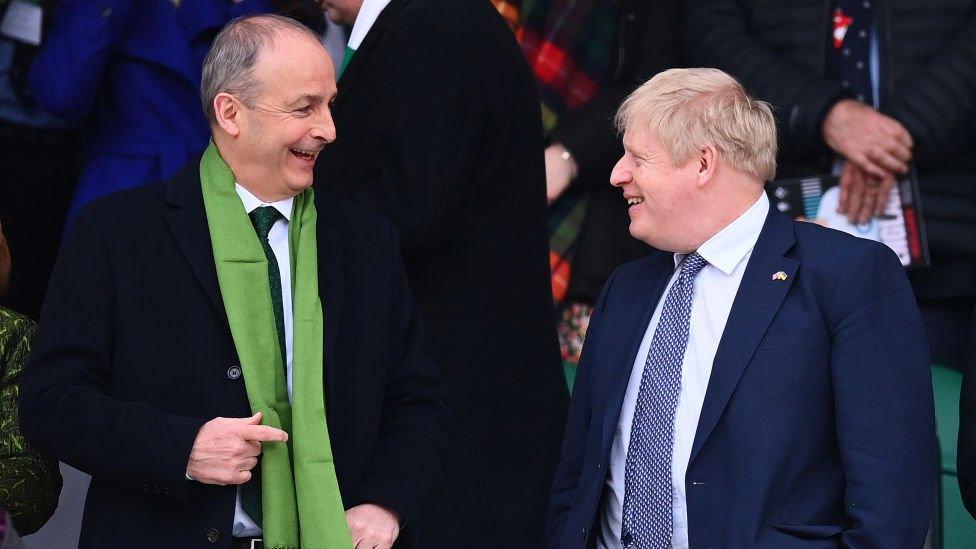
- Published9 March 2022
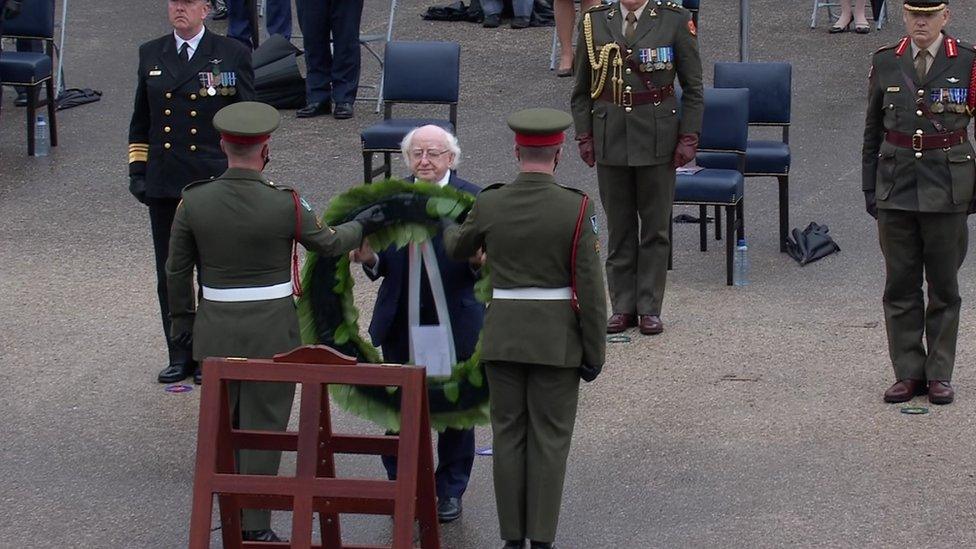
- Published8 March 2022
